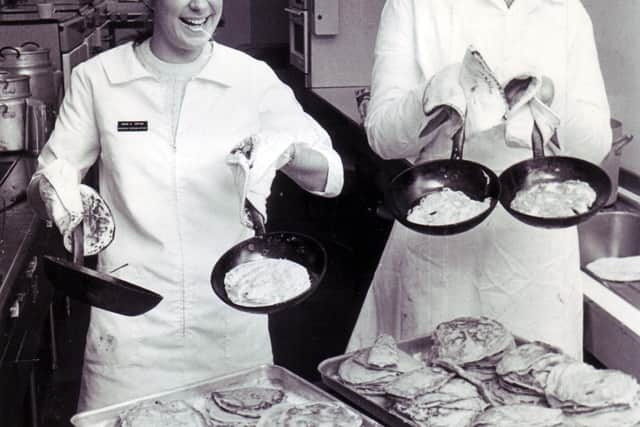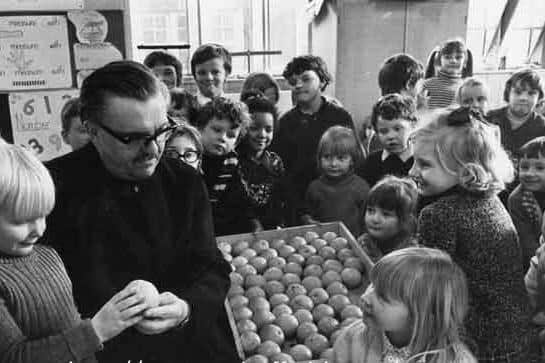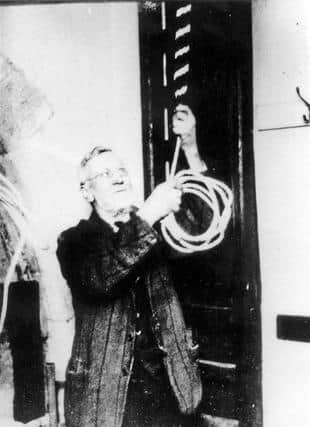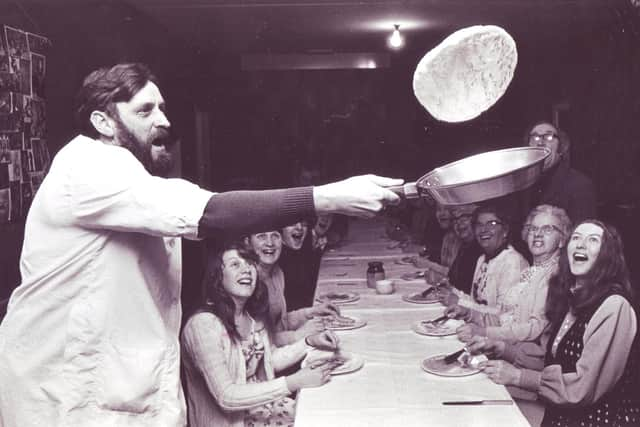How Sheffield has celebrated Pancake Day over the years
and live on Freeview channel 276
Shrove Tuesday was historically an event for the Christian calendar leading up to Easter, which involves a day of feasting, followed by a day of obtaining absolution for one's sins through confession and penance.
As well as the making and eating of pancakes, other traditions have emerged over the years including pancake races, bell ringing, and in Sheffield more recently, annual lectures from the city’s Bishop, Pete Wilcox.
Advertisement
Hide AdAdvertisement
Hide AdA spokesperson for this year’s event, which takes place on Tuesday, February 16, said: “On Tuesday afternoon, Bishop Pete will offer an exposition of the first two chapters of the story of Esther, in the context of the whole book. He will explore how the text invites us to view the power dynamics at play between the thoroughly male court of King Ahasuerus on the one hand, and the two Queens on the other.”


Bishop Wilcox will give his talk a week earlier this year and virtually, due to Shrove Tuesday coinciding with half-term and pandemic restrictions.
In other areas of the world, Shrove Tuesday is also known as Fat Tuesday and Mardi Gras but in the UK, it is referred to by most non religious people as Pancake Day.
Although Shrove Tuesday is not a bank holiday, it was once known as a ‘half-holiday’ in England, signalled by the ringing of a church bell at 11am.
Advertisement
Hide AdAdvertisement
Hide AdThe date itself is not fixed but always falls 47 days before Easter Sunday, which is determined by factors such as the lunar cycle and the Spring Equinox.


The tradition of Shrove Tuesday dates back to the Middle Ages, with ‘shrove’ being derived from the word ‘shrive’, which translates as ‘confession’.
Ash Wednesday follows Shrove Tuesday and is the first day of Lent so is considered an important time for Christians to confess their sins in the run up to Easter.
The crucifixion and resurrection of Jesus Christ is celebrated at Easter but Lent represents the time that Jesus fasted in the desert.
Advertisement
Hide AdAdvertisement
Hide AdUndertaken for 40 days and 40 nights as Jesus Christ did, Christians also give up luxury food items for the same duration, or around six weeks.


It is typical to use up leftover ingredients before fasting begins, as luxury foods are forbidden during Lent.
Items such as sugar, eggs and fats were considered luxurious some years ago, which is where the idea of making pancakes originated from.
Aside from eating pancakes, a tradition that has been adopted by various towns and villages since the 15th century is pancake races, in which competitors race to the finish line while flipping their pancakes in a frying pan.
Advertisement
Hide AdAdvertisement
Hide AdIt has been suggested that the origins of the tradition came from a housewife in Olney, Buckinghamshire in 1445.


The woman had been so busy making pancakes that she lost track of time, which led to her running to church still carrying her frying pan when she heard the bells ringing to signal the 11am service.